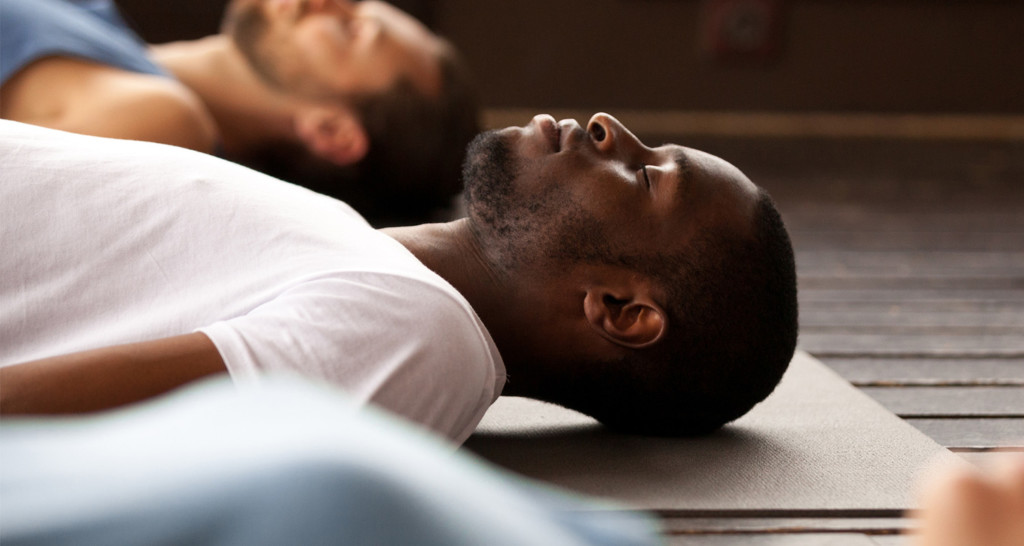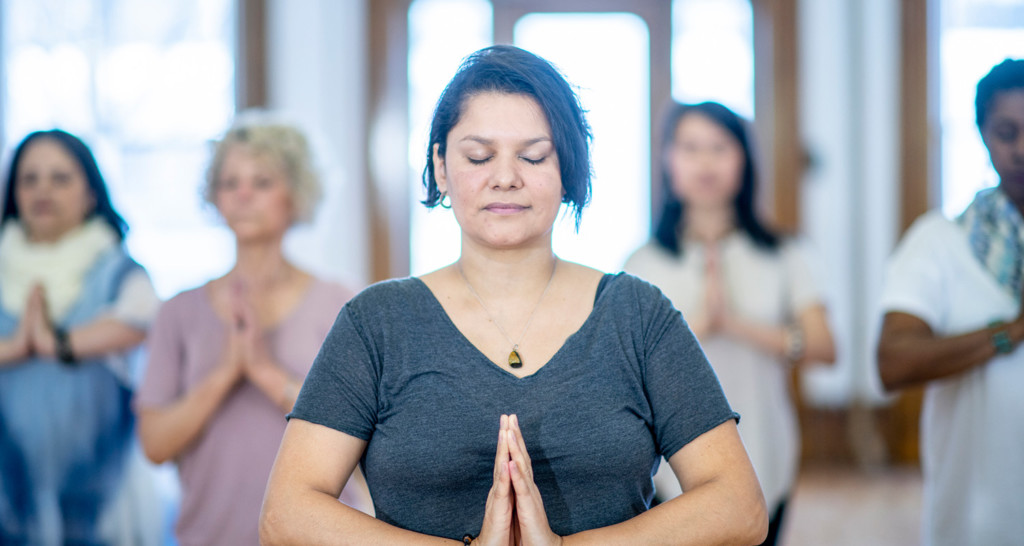- Regular meditation lowers stress, strengthens your immune system, boosts memory, and improves mood.
- But there’s another benefit you may not be as familiar with: better sex.
- Read more about how meditation can take your sex life to new levels with this excerpt from “Stress Less, Accomplish More” by meditation expert Emily Fletcher.
- Then check out her exclusive guided meditation for better sex, created especially for Bulletproof readers.
You know by now that meditation is really good for you, for all kinds of reasons. Regular meditation lowers stress, strengthens your immune system, boosts memory, and improves mood. But there’s another benefit you may not be as familiar with: better sex.
“Mind-blowing sex might seem like an unlikely benefit of meditation, but it can actually do much more for you in the bedroom than Viagra,” writes Emily Fletcher, founder of Ziva Meditation, in her book, “Stress Less, Accomplish More”.
Read more about how meditation can take your sex life to new levels with the excerpt below from Fletcher’s book. Then check out her exclusive guided meditation for better sex, created especially for you.
FROM OHM TO OMG!

(excerpt from “Stress Less, Accomplish More” by Emily Fletcher)
Once people get over the misperception that they should magically be able to “clear their minds” during meditation, they start to believe that if they have thoughts, they should only be pure thoughts of enlightenment and bliss. Ironically, this mindset often keeps folks from talking about one of the biggest benefits of meditation: better sex. In fact, this chapter may be the number one reason you picked up this book. If that’s the case, I’d like to open by saying, You’re welcome.
Now, at first glance, it may seem a little out of place to have a chapter on how meditation makes you better in bed in a book that is designed for high achievers—after all, this is not exactly the sort of thing that will typically help you get ink on a contract. But have you ever felt as if your sex life was in something of a rut? If so, it kind of makes everything in life a little duller, doesn’t it? On the other hand, the morning after you rocked your partner’s world (and maybe even had your own mind blown in the process), you walk around with a little extra swagger and a little more confidence that you could do anything, didn’t you? That’s what I’m talking about.
Up-leveling your performance in the bedroom, besides being a pretty fantastic benefit in and of itself, can also help you up-level your performance in the boardroom. (Besides, we high achievers tend to be a little competitive and want to feel safe in the knowledge that we are the best at everything.) As the saying goes, how you do anything is how you do everything. So let’s talk specifically about how meditation can up-level your performance in the bedroom.
Mind-blowing sex may seem like an unlikely benefit of meditation, but the Z Technique can actually do much more for you in the bedroom than Viagra. For too long, meditation has been associated with asceticism and monks, which is why it’s taken us so long to get around to exploring its effects on sex (just in case you needed one more reminder that this practice is definitely not for monks).
First, the Obvious . . .

A student of mine who is a lawyer in New York City came to Ziva because he was dealing with anxiety. He joined a group meditation one year after he started with Ziva and said, “You joked once before about meditation making my sex better, but what’s happening for me is crazy. It feels un-meditate-y to say, but my sex life is stunning now.” Animalistic, raw, and mind-blowing were the most memorable adjectives he used to describe his newfound sexual prowess. He told me that since the first week of taking the course, he noticed not only that he was able to last much longer during intercourse, but also that he felt more control over his orgasms and had much more energy, and a stronger sex drive as a result.
Another student vouched for the fact that, after only one week of being fully committed to a regular, twice-a-day practice, she had an orgasm literally every single time she and her partner had adult playtime—a fact that had definitely not been true before she came to Ziva.
Obviously meditation was not the only contributing factor in these scenarios—after all, it takes two to tango—but based on what we regularly hear from Ziva graduates, these experiences are not at all uncommon.
So why does meditation make you better in bed? Well, let’s consider context first. Many of us are stressed out, whether from work, our relationships, money, or any of our many responsibilities. We’re often so caught up in our heads that we’re not fully in touch with our bodies. We’re also frequently so busy reviewing the past and rehearsing the future that we’re not present in the right now.
None of these things are ingredients for a great sex life. And on top of everything else, increased levels of cortisol and adrenaline from stress decrease both sexual desire and sexual performance. Sexual trauma can also play a role here. Remember: We shouldn’t be asking how meditation can do so much good, but how stress can mess up so many things.
But there are a few other reasons, besides the basic biology of stress release, that help make these mental techniques such powerful tools for improving your sexual performance.
Discover these reasons and more in Fletcher’s book “Stress Less, Accomplish More”








